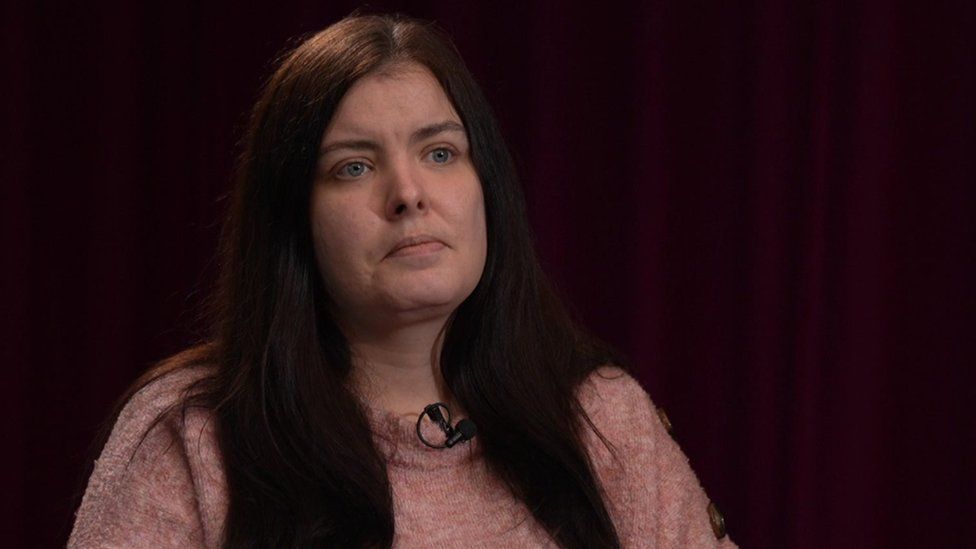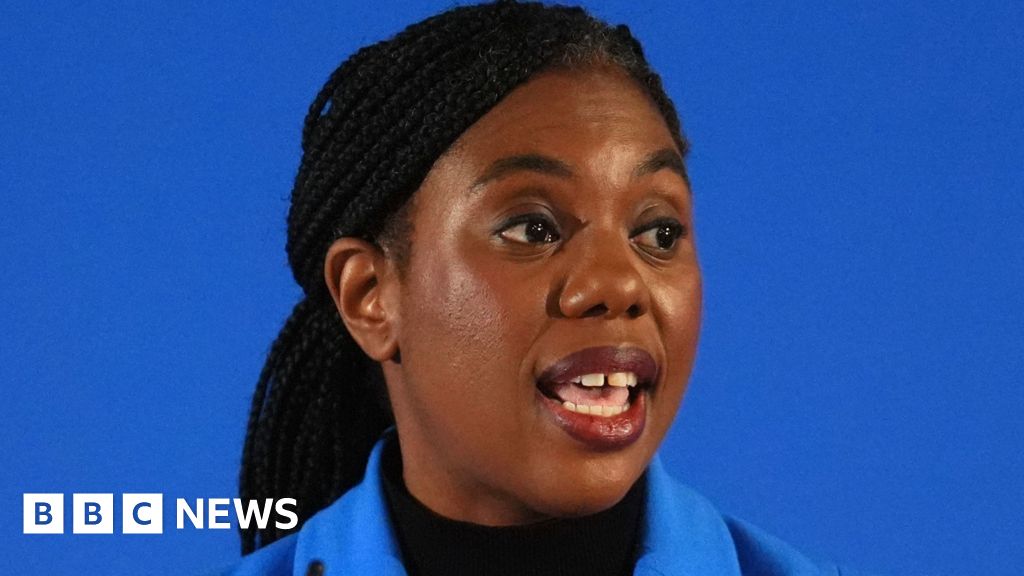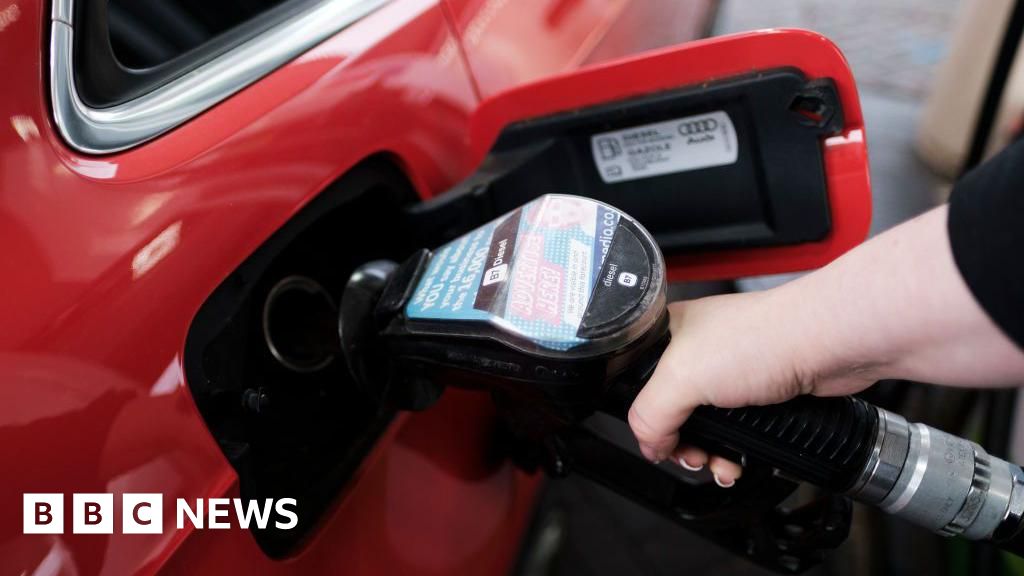ARTICLE AD BOX

Christine says she saw "a lot of things that were not ok" during her seven years working at McDonald's.
By Noor Nanji
Business reporter, BBC News
Christine was working at a South London branch of McDonald's in 2018 when, she says, she was sexually harassed by a manager.
"He pulled his pants down in the stockroom," she said, adding the experience left her "terrified".
Her story comes after McDonald's signed an agreement with the UK equality watchdog following concerns over how it handled sexual harassment complaints.
McDonald's said Christine's experiences were "completely unacceptable".
"We are extremely concerned to hear these allegations," a spokesperson said. "We would encourage them to contact us directly so we can investigate immediately."
Currently, the amount of complaints of sexual harassment made by McDonald's workers in the UK is unclear, but four years ago the union representing the company's employees, the Bakers, Food and Allied Workers Union (BFAWU), said it had received 1,000 of them.
Concerns were raised by employees via the union about inadequate processes to deal with the allegations, which led the Equality and Human Rights Commission (EHRC) to get involved.
And on Wednesday, it was announced that the fast food giant had signed a legal agreement with the EHRC to protect staff from sexual harassment.
The agreement, known as the section 23 agreement under the Equality Act 2010, means the EHRC will now monitor the company to check if it is complying with the law. If it finds evidence it is not, it will investigate. The EHRC told the BBC that it did "not enter into agreements lightly".
Christine, who has waived her right to anonymity, started working at McDonald's in 2011, having just moved to London. She told the BBC she "thought it would be really great", but added "I had no idea what I was walking into".
She described a toxic workplace culture, with managers flirting with more junior staff, and another manager going around "touching everyone's bum".
"I saw a lot of things that were not okay," she said.
She described how one manager constantly came up to her and said "inappropriate things".
She tried to manage the situation by asking colleagues to intervene. Christine then said she started suffering anxiety and panic attacks, and started taking anti-depressants "just to cope with going into work".
"How do you expect to work when you're having a panic attack, you can't breathe? Your heart's racing, and you're terrified," she said.
"You don't want this person to come up to you doing or saying anything. You would assume that they get the message when you say no, but they just think it's okay. They don't see what they're doing to you."
Things took a turn for the worst one day in 2018, when she was feeling unwell and went into the stockroom to ask the manager's permission to go home.
"He started making really inappropriate sexual suggestions that I wasn't comfortable with," she said. "He pulled his pants down in the stockroom and wanted me to do inappropriate things."
Christine said she walked out and went to her business manager to raise a complaint, but added after the business manager spoke to the man in question, she was told to "get back in the kitchen and work with him".
When she objected, the business manager told her to call the police if she had such a problem.
"So I was like, fine. I packed up my stuff and went home," she said.
Christine never worked at McDonald's again, although she claims the man is still employed there.
She described her time working at the fast food chain as "one of the worst experiences of my life".
"I want McDonald's to realise what they're doing is not okay," she said. "It feels like you're being bullied, it feels like you don't have a voice," she said.
"You should not have to go into work feeling anxious or scared...you need that job to pay your bills and to keep a house going but at what price."
In response to Christine's story, McDonald's said the experiences described by her were "completely unacceptable and have no place in our restaurants".
A spokesperson added the safety of its teams and customers was an "absolute priority" and said the company encouraged "all employees to speak up if they have any concerns of any kind".
Ranjit O'Mahony of Thompsons Solicitors, which has worked with the union on sexual harassment complaints, any cases the firm had been instructed by the BFAWU had been "settled with a confidentiality clause at McDonalds insistence".
She said that the firm "wash their hands of legal liability if they possibly can by passing the buck to local managers, and the franchise system they operate for the stores enables them to do so".
'Zero tolerance'
Under the section 23 agreement, McDonald's has committed to a number of measures to protect staff in the UK from sexual harassment. These include communicating a zero tolerance approach to sexual harassment and improving responses to complaints.
Other measures include conducting an anonymous survey of workers about workplace safety, and providing anti-harassment training for employees.
Baroness Kishwer Falkner, chairwoman of the EHRC, said that by signing this agreement, McDonald's had shown its intent to make its restaurants "safe places to work".
Meanwhile, Alistair Macrow, chief executive of McDonald's Restaurants Limited in UK and Ireland said he welcomed the "opportunity to work with the EHRC" and added harassment and abuse had "no place" at McDonald's.
But Sarah Woolley, general secretary at the BWAFU, said she didn't have "a lot of confidence" that the agreement would change the culture at McDonald's and said the union didn't believe complainants had been consulted on "how they believe problem should be fixed".
Image source, Reuters
Image caption,McDonald's former chief executive Steve Easterbrook (right)
There have been sexual harassment allegations by workers at the McDonald's US restaurants over several years.
In 2019, Steve Easterbrook was fired as chief executive of McDonald's after finding he had had a consensual relationship with an employee, with the firm stating he had "violated company policy".
Further investigation uncovered hidden relationships with other staff members and in January, In January, he was fined by the US financial watchdog for misleading investors about his firing in 2019.
Mr Easterbrook agreed to pay a $400,000 penalty, without admitting or denying the claims.
The food giant prohibits "any kind of intimate relationship between employees in a direct or indirect reporting relationship".

 2 years ago
48
2 years ago
48








 English (US) ·
English (US) ·